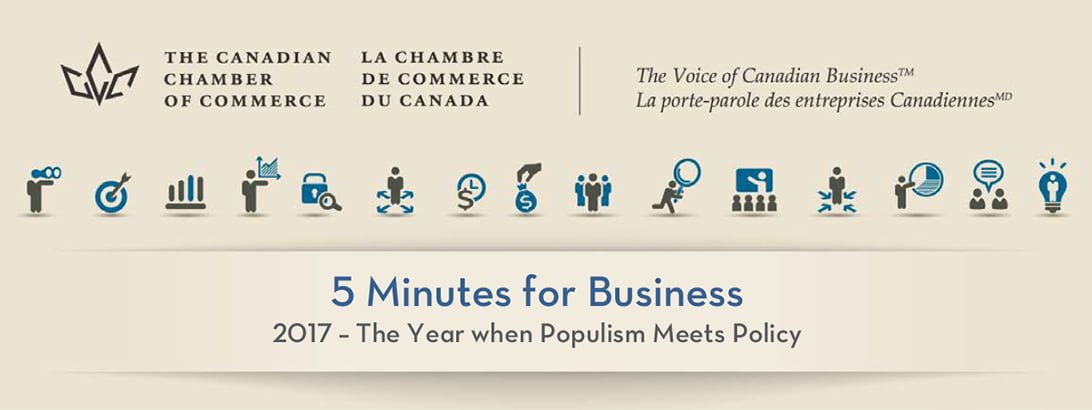If 2016 was the year of Populist Surprise (none of us predicted Brexit or the victory of Mr. Trump), then 2017 will be the year of Populist Policy. More precisely, this will be the year we find out whether this global wave of populism will translate into concrete policies.
A new U.S. president has taken office and his supporters’ expectations are beyond sky-high. Mr. Trump didn’t just promise to strengthen the economy, he promised a people’s revolution to bring back manufacturing and coal mines (“Your jobs will come back […] steel will come back. We’re putting miners back to work.”) and “unleash massive wealth for American workers.”
There are few policy specifics yet, though we know the new administration favours big tax cuts and deregulation, a “no”’ to border adjustment taxes but a “yes” to tariffs on companies that leave the U.S. These ideas are pretty conventional. They’re essentially George W. Bush’s economic policies with a sprinkling of tariffs. Will they satisfy the angry masses who eagerly await transformative results? As one supporter put it, “My boss is a smart man and he said it can’t change overnight, but give it six months to a year.”
Across the Atlantic, Prime Minister Theresa May clarified that Britain’s membership in the EU would be replaced with a free trade agreement. And if the U.K. were unable to reach an agreement, it would simply leave. Strong words and a shock to business and young people who want close integration.
Europe is in for more upheaval in 2017. The Netherlands is set for a general election in March and France will have its elections in April and May. In both countries, the populist, right wing parties are widening their leads and promising to leave the EU following a referendum. Again, there are no policy specifics, just slogans about taking the power back.
So what does it actually mean in policy terms to reject trade, refuse globalization and close borders? We’ll find out in 2017, but in the meantime, here are three predictions.
Firstly, the U.S. economy is going to have a strong 2017—unemployment is just 4.6%, and wages are rising 3% year-over-year. Consumer confidence is at the highest level in 12 years, and business confidence is close to an all-time high. This impressive performance combined with PR wins, like Carrier and Ford making important investments in the U.S., will lessen the pressure on the Trump administration to push for destabilizing tariff policies. The renegotiation of NAFTA will cause uncertainty, but will take time and will not be resolved in 2017.
Secondly, just a short time after the British begin the Article 50 process to leave the EU (likely in March), one or both of France and the Netherlands will elect leaders who also want to leave the EU. But rather than spell the end of the union, this will bring about a new flexibility from Brussels. If members want greater control over immigration and taxes and an exemption from certain regulations, surely that is preferable to dismantling the union.
Lastly, Canadian business will see stronger export demand from a healthy U.S. economy and a weaker loonie. The uncertainty surrounding NAFTA will be troublesome, but we’ll be working with businesses and allies in the U.S. to promote the benefits of trade. Overall, 2017 will be a year of Shock and Opportunity. To find out more, check out our Crystal Ball Report.
For more information, please contact:
Hendrik Brakel Senior Director, Economic, Financial & Tax Policy
613.238.4000 (284) | hbrakel@chamber.ca



